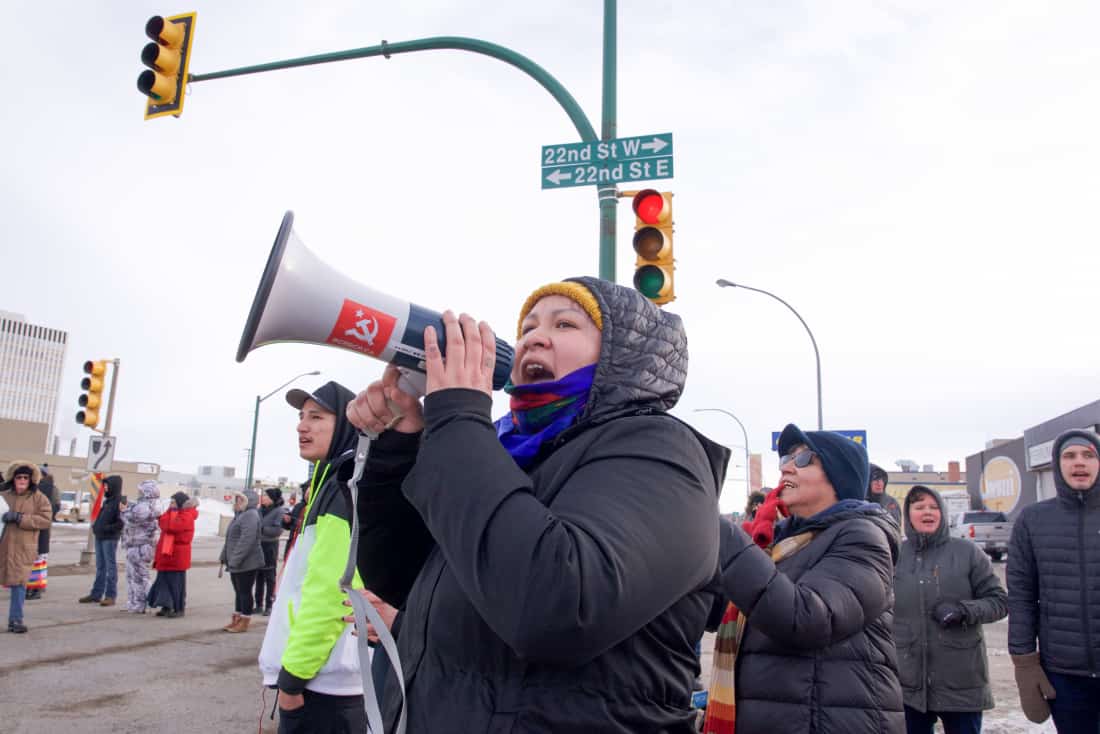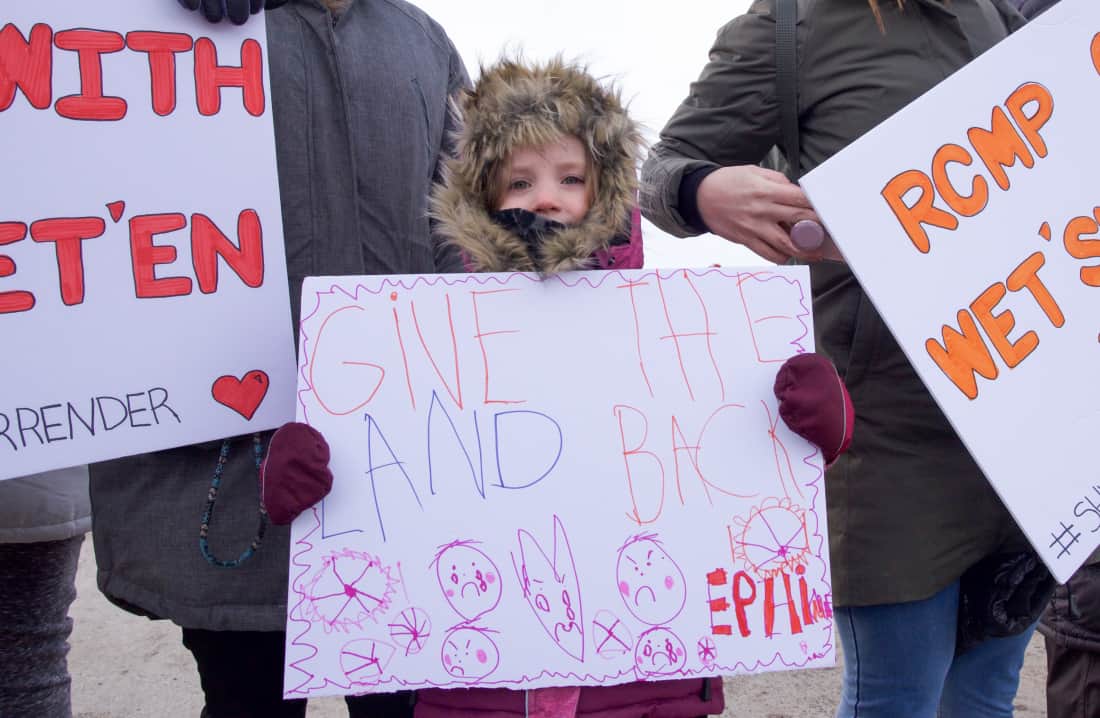
Amidst the national protests and railway blockades of the Wet’suwet’en solidarity movement, the Liberal government has reportedly backpedaled on its promise to pass legislation that would harmonize Canada’s laws with the United Nations Declaration on the Rights of Indigenous Peoples by the end of 2020.
This crisis should not be an excuse for Canada to keep with the 13 year tradition of postponing UNDRIP’s implementation.The present situation shows that reconciliation requires a national action plan to recognize and protect Indigenous peoples international human rights.
UNDRIP is a historic document ratified by the United Nations. This document consists of 46 articles, which establish minimum international standards for the protection of the rights of Indigenous peoples. The declaration includes affirming Indigenous peoples’ right to self-determination, rights to territories and resources and their participation in all decision-making that affects them.
Last summer, Justin Trudeau promised that his government would introduce legislation to implement UNDRIP into federal law if he was re-elected as prime minister. But the Liberals’ decision to delay this promise amidst the national protests is representative of Canada’s long and problematic relationship with the declaration.
Work on UNDRIP first began in 1982, but it was not adopted by the UN General Assembly until 2007. When the international community voted on the declaration, there were 144 votes in favour, 4 against and 11 abstentions.
The countries that opposed UNDRIP — Canada, Australia, New Zealand and the United States — all share similar histories as settler-colonial nations. Histories which include Europeans committing acts of mass violence against Indigenous peoples while dispossessing them of their territories.
Although the UN enhanced the existing international human rights standards with UNDRIP, Canada’s officials had “significant concerns” about how universal self-determination could be interpreted into domestic law. Self-determination is the right to participate in the political process and influence one’s own economic, cultural and social development.
The state also opposed having to obtain “free, prior and informed consent” before implementing laws or plans for resource development that may affect Indigenous groups.
Accepting the UN consensus that Indigenous peoples have minimum standards for their survival, dignity and well-being has proven incompatible with Canada’s current relationship with Indigenous nations.
The rejection of the Trans Mountain Expansion Project by hereditary chiefs of the Wet’suwet’en nations has revealed the need for the government to obtain proper consent to avoid situations like the ongoing protests.
But the present need for UNDRIP is a product of a decade of inaction by the government. It was not until 2010 that Canada officially endorsed UNDRIP but with qualifications. Although Canada was willing to change its stance on declaration, the country only supported it as a “non-legally binding” and “aspirational” document.
Stephen Harper’s Conservative government made the official endorsement of UNDRIP to reiterate Canada’s willingness to reconcile its relationship with Indigenous peoples. In reality, this commitment was hollow — it allowed for Indigenous citizens to have their international rights acknowledged but not legally recognized.
In the Truth and Reconciliation Commission’s 2015 Calls to Action report, all levels of government were instructed to fully adopt and implement UNDRIP through a national action plan “as the framework for reconciliation.”
The implementation of UNDRIP looked hopeful in 2016 when Minister of Indigenous and Northern Affairs Carolyn Bennett announced to the UN that Canada would remove its official objector status after almost a decade and support the declaration “without qualifications.”
During the 150th anniversary of Confederation in 2017, Trudeau told the UN General Assembly that the full implementation of UNDRIP and advancing Indigenous self-determination was the “way forward” for the nation to achieve reconciliation.

In reality, applying all 46 articles of UNDRIP to Canadian law poses serious challenges and would require a radical transformation of our country’s institutions and constitution. UNDRIP is not just something Canadian leaders should irresponsibly promise then continually postpone.
With the declaration described as the necessary next steps for reconciliation by both the TRC and Trudeau, this precedent has been set for its implementation. Actions now must be taken or all that talk means nothing.
Once again progress seemed hopeful in May of 2018, when Member of Parliament Romeo Saganash’s proposed Bill C-262 was passed in the House of Commons. If the bill was made into law, the government would have to follow a national action plan to ensure Canada’s laws were in harmony with UNDRIP.
Bill C-262 was supported by the Liberals and was a meaningful opportunity for Canada to fulfill its outstanding promise of furthering reconciliation. But this promise was short lived when the bill was killed in the Senate.
Last June, Conservative senators used a variety of delay tactics to prevent the third and final reading of Saganash’s bill.
This stalling shows that certain politicians were willing to ignore their responsibilities. They feared what recognizing Indigenous self-determination could have for economic development during the push for the pipeline. Critics have called the maneuvers “undemocratic.”
British Columbia’s government successfully passed Bill 41 on Oct. 31, creating a framework to align the province’s laws with UNDRIP. Two months later, Bennett restated the federal government’s goal to pass similar federal legislation by the end of 2020.
After all these actions had been taken, the Supreme Court of B.C. still granted an injunction for the removal of obstructions on Wet’suwet’en territory on Dec. 31. This move calls into question the sincerity of B.C.’s implementation of UNDRIP.
Though Article 10 of UNDRIP states, “Indigenous peoples shall not be forcibly removed from their lands,” the RCMP raided Wet’suwet’en territory to enforce the injunction while arresting a handful of peaceful protestors this February.
Some advocates and Indigenous leaders argue that the present situation is evidence that Canada should be implementing UNDRIP to avoid a similar crisis in the future.
The government’s actions are what has led to the national rail blockades in solidarity with the Wet’suwet’en nation and cries that “reconciliation is dead.” While dead is a strong word, the decision to table the promised bill on UNDRIP amidst this crisis has further extended the postponement of reconciliation.
This op-ed was written by a University of Saskatchewan undergraduate student and reflects the views and opinions of the writer. If you would like to write a rebuttal, please email opinions@thesheaf.com.
—
Noah Callaghan | Staff Writer
Photos: Victoria Becker/ Photo Editor
Leave a Reply